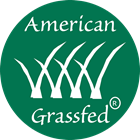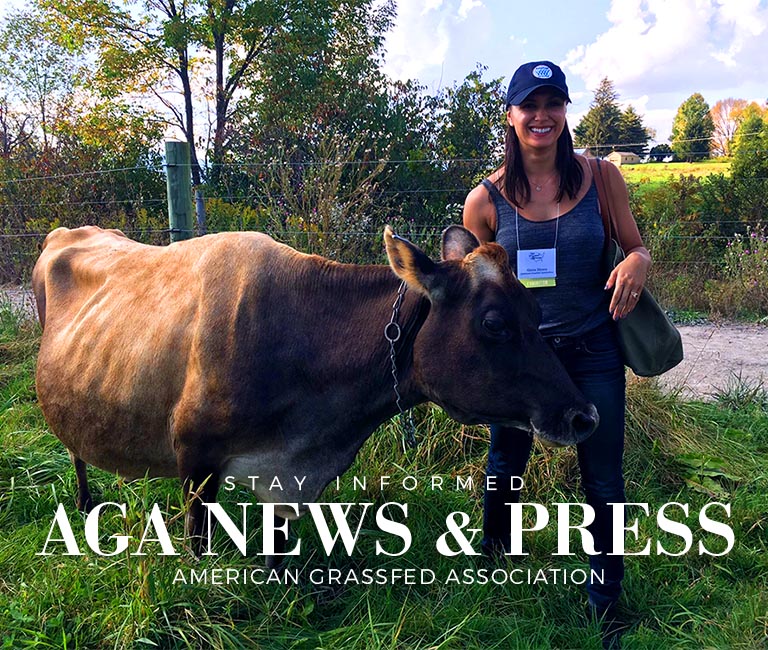-
Community Rallies Behind Processing Project
 Sometimes, it takes a village to expand a meat processing enterprise.
Sometimes, it takes a village to expand a meat processing enterprise.That was evident recently in the northwestern Colorado town of Craig as Deborah Fitch of Fitch Ranch Artisan Meats guided the mayor, city council members, economic development officials, lenders, and builders through the processing plant she and her husband, Cam, have steadily grown since purchasing it in 2022.
The current facility is bursting at the seams, producing the family’s branded products distributed in regional retail stores and restaurants, and processing beef and pork for fellow ranchers in the area. The point of the tour, and a subsequent meeting with the officials, was to demonstrate the need for a new facility planned across the street from the existing plant.
Last year, the Fitches were awarded a Meat and Poultry Processing Expansion Program (MPPEP) grant, which will cover a portion of the $28 million project designed to process up to 100 head of cattle daily. Now, they are working to button up financing, navigate the regulatory process and finalize construction details before formally breaking ground.
The Fitch Ranch Artisan Meats expansion project is a bright ray of sunshine in a region clouded in economic uncertainty. Craig was founded as an agricultural community, but coal mining and the construction of a large coal-fired electric generating facility nearby began to replace farming and ranching as the primary economic driver half a century ago. Now, economic shock waves are rippling through the community as the aging power plant is being decommissioned, and the mines are shutting down.
The new meat processing facility will initially employ approximately 100 people and provide new opportunities for area ranchers to process their animals and develop their branded products. However, former coal miners looking to work at Fitch Ranch Artisan Meats will need training and affordable housing.
Craig’s political and economic leaders are stepping up to provide that infrastructure.
“Our economic development team has been working with Deborah and Cam since the beginning,” said Mayor Chris Nichols. “Our role is to develop new housing and infrastructure to support this type of business expansion. This is a great project that will provide jobs and economic development, and in the process, new tax revenue, for our community.”

The MPPEP grant isn’t the only way that USDA is supporting the growth of Fitch Ranch Artisan Meats.
Deborah and Cam were among the first processors nationwide to adopt the new Remote Beef Grading program, which provides an affordable method for smaller processors to market products bearing the USDA Choice and Prime labels. Being able to grade their beef carcasses is crucial for the Fitches, because they are one of the smallest processors in the United States eligible to process and market products under the Certified Angus Beef label.
On the financing side, the couple is working with the Fremont County Economic Development Corporation (FEDC) to access financing that FEDC administers through USDA’s Meat and Poultry Processing Intermediary Lending program.
Diana Armstrong, executive director of FEDC, participated in the recent tour and noted that the project in Craig can help seed new economic development in her region on Colorado’s Eastern Slope.
“As a grantee of the USDA Meat and Poultry Intermediary Loan Program, we’re proud to support the impactful Fitch Artisan Meats project and help expand opportunities for the people of Craig as they transition from coal. As funds revolve, we will reinvest in our Fremont County communities—strengthening both local economies and Colorado’s broader food system,” she noted.
The Fitchs’ expansion project is ambitious, but with the support of their village, area ranchers, former coal miners, and consumers will benefit from this new beacon of economic development in Northwest Colorado.
Tagged: USDAMeatandPoultry, USDAFoodSupplyChain, MPPEP, MPPTAProgram, MPPTA, MeatandPoultryProcessingCapacityTechnicalAssistance
Source: Flowerhill institute
Relevant Links:-
American Grassfed Association certification standards and benefits:
https://www.americangrassfed.org/about-us/our-standards/
https://www.americangrassfed.org/the-importance-of-grassfed-certification-ensuring-transparency-and-quality-standards/ -
Grassfed certification programs and benefits:
https://agreenerworld.org/certifications/certified-grass-fed/
-
-
Scrutiny of Meat Labels Like Grass-Fed Misses Green Expectations: A Closer Look at USDA’s New Guidelines

Federal regulators have issued new guidance aimed at clarifying how terms like “grass-fed” and “free-range” are used in the meat and poultry industry, but sustainability activists argue that it doesn’t fully address the growing concerns about greenwashing.
The US Department of Agriculture (USDA) updated its guidance last week, focusing on voluntary marketing claims about how livestock are raised and the sustainability of land use. The guidance encourages companies to provide more robust documentation to support their animal-raising or environmental claims and to use third-party certifications to substantiate these claims.
This update follows increasing scrutiny over greenwashing practices, particularly in the meat industry. Earlier this year, New York’s attorney general filed a lawsuit against JBS, the world’s largest beef processor, accusing the company of greenwashing by making unsubstantiated environmental claims.

Ben Lilliston, director of rural strategies and climate change at the Institute for Agriculture and Trade Policy, praised the USDA for requiring more information but emphasized that more needs to be done to ensure labels are not misleading. He stated that documentation alone isn’t enough to fully address concerns about transparency in meat labeling.
Businesses and activists are also looking to the Federal Trade Commission (FTC), which is expected to update its Green Guides, a set of marketing guidelines designed to ensure that environmental claims made by companies are truthful. The guides haven’t been updated in over a decade, which has caused confusion for businesses trying to navigate environmental marketing.
The USDA’s Food Safety and Inspection Service reviews documentation submitted by companies to support their animal-raising and environment-related marketing claims. Labels can only be used if approved by the agency. Agriculture Secretary Tom Vilsack emphasized that this new guidance will help level the playing field for companies that are truthful in their claims and will allow consumers to trust labels when purchasing meat products.
However, critics argue that third-party certification should be mandatory to ensure consistency. The American Grassfed Association (AGA), a leader in setting high standards for grass-fed meat, has long pushed for stricter enforcement to protect consumers and farmers alike. Carrie Balkcom, AGA’s executive director, stressed that voluntary guidelines aren’t enough, calling for mandatory third-party certification to ensure transparency and trust in labels.

Meanwhile, organizations like People for the Ethical Treatment of Animals (PETA) continue to express skepticism, arguing that no type of certification can make meat, eggs, or dairy truly sustainable. They have also raised concerns about third-party certifiers like the Global Animal Partnership, which has faced criticism in the past.
As the USDA continues its efforts to address transparency in labeling, federal agencies and companies alike are working to find a balance between providing clear, trustworthy information and navigating the complexities of environmental marketing.
This blog post is based on an article originally reported by Clara Hudson for Bloomberg. To review, read the full article here.


